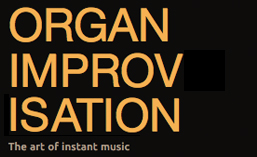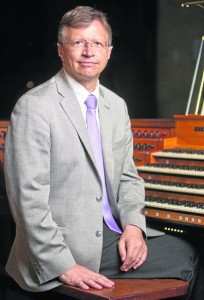While I did not plan for the series to end this way, it seems appropriate that on this day when American are waving their red, white and blue to celebrate Memorial Day, the topic of the newsletter is color. Whether you are from the USA or somewhere else, I hope you will take a moment to express gratitude to those who gave their lives to enjoy the freedom that you are able to enjoy today.
Registration
While registration is an issue of competency, it also is an aspect of color. In the first issue on Competency, I expressed the need for an organist to be familiar with the registrations and combinations of organ stops available to him or her. Even a small organ of 12 stops offers 220 combinations of three stops! (You can check the math or try other numbers here.) While not all of these would project a sense of competency, I believe we fall into registrational habits and often fail to exploit all the colors an instrument may offer us. Instead of simply pulling out the 8′ Flute as a solo, why not try using a 4′ down one octave or a 2′ down two octaves? That 16′ reed in the swell might make a lovely 8′ solo stop if you play an octave higher. Using “non-traditional” registrations like this can also increase your mental dexterity and make it easier for you to play a melody or theme with the left hand or pedal.
Melody
Speaking of melody, a layer of color can come from melody notes that are non-chord tones and the contour of the melody itself. Every style (see The 3rd C: Coherent) has a set of rules for the relationship of melody to harmony with guidelines for how to treat non-chord tones. One simple exercise that was given to me by Philippe Lefebvre for finding colorful melodies was to hold a chord with the left hand and only play notes not in the chord with the right hand. It will take trial and error to discover which notes of the scale work best with what sort of chords, but let your ear be your guide. Perhaps the simplest rule I ever heard for non-chord tones came from Gerre Hancock in his admonition “Salvation is always a half-step away.” If you play something that sounds a little off, chances are there is a note right next to it that will sound better, and if you can repeat yourself and play it again, you become convincing and colorful at the same time!
Harmony
A lot of my instruction in improvisation has focused on building and creating my own harmonic language. One of the ways to do this is to take a colorful harmonic progression from a written composition, memorize it, and then transpose it into all possible keys. Here’s a sample from the first movement of Louis Vierne‘s Symphonie no. 3:

The pedal part is an ornamented pedal point. (We could consider it a melodic way to add color to a static note!) The manuals could be simplified by only playing beats one and three of the chords. With these adjustments, we have a progression ready to transpose into all other keys and will be adding a new way to color a pedal point to our harmonic vocabulary.
What passages from repertoire do you find colorful? Examine them closely, simply if necessary and transpose them to make them part of your improvisational vocabulary. I’d love to know which composers and pieces you find inspirational.
Happy Memorial Day!
May all your improvs be colorful!
Glenn Osborne
Recent additions to organimprovisation.com:
The Store
has been greatly expanded. There are now over a dozen method books and over fifty recordings with a separate section now for Pierre Cochereau!
Organists:
Themes:
Newsletter Issue 5 – 2014 05 26
See the complete list of past newsletter issues here.
Sign up to receive future issues using the box to the right on this page.


